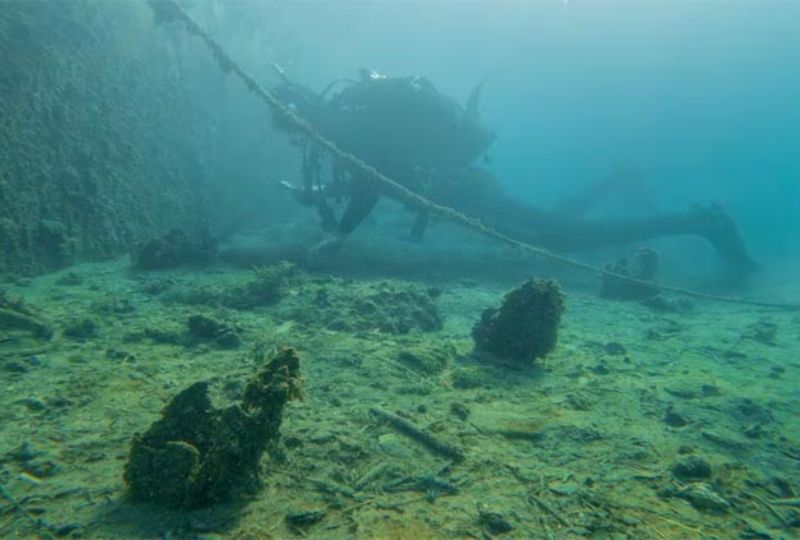A huge clam that was on the verge of extinction has made a comeback, with a surge in numbers in waters off Croatia, marine biologists say.
The clam, known as the noble pen shell or pinna nobilis, started dying out as a deadly pathogen spread in parts of the Mediterranean around 2016.
Numbers plummeted across the region and, until recently, scientists in Croatia only knew of around 10 surviving in their corner of the Adriatic.
Then last year a diver spotted a group of 20 near the shore in the north of the Istria peninsula.

Sandro Dujmovic inspects dead Pinna nobilis seashells in Vrsar harbor, Croatia, December 7, 2023. REUTERS/Antonio Bronic/ File photo
"The news sounded incredible. It was impossible they were alive," said Sandro Dujmovic of the Natura Histrica organisation which manages Istria's protected areas.
This year biologists managed to collect about 100 young specimens and take them to an aquarium.
"It was a sign that they are still reproducing themselves," Dujmovic told Reuters.
The clams, whose shells can grow as much as 4 feet (120 cm) across, play an important ecological role by filtering sea water and allowing other organisms to flourish.
In the aquarium in the Adriatic town of Pula, they are kept in specially filtered water, clear of the parasites that can attack them.
"We keep (them) here primarily to secure the cleanest possible environment for them ... and try to strengthen them as much as possible to become resistant and capable to survive a possible return to the sea," biologist Nikolina Premate said.
.jpg)
Sandro Dujmovic inspects a live Pinna nobilis seashell in Vrsar harbor, Croatia, December 7, 2023. REUTERS/Antonio Bronic/ File photo
Dujmovic and Premate said it was too early to say what had caused the comeback, but Croatia's government was funding more research.
"A network of institutions and individuals has been created along the Adriatic coast who are checking, searching, collecting," Dujmovic said.

.jpg?20241221')
&uuid=(email))